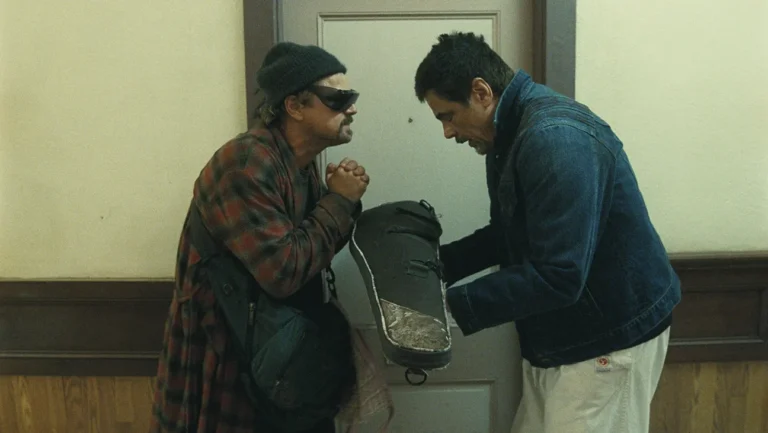Whether you’ve booked a lead in an indie film, a guest role on TV or a character in a web series, you’ve finally landed your first big break.
Upon landing the role, the producer hands you a contract and says, “It’s just standard. Go ahead and sign.” You don’t want to rock the boat because you’re grateful for the opportunity and don’t want to appear difficult, so you sign. This is a common pitfall.
A month later, your face is all over the internet, but not in the way you hoped. You’re not getting paid or appropriately credited, and your scene is being used to promote a different project altogether.
After carefully reviewing your paperwork, you realize that the contract you rushed to sign gave away more than just your performance — it gave away your rights. This is the reality many new performers face. Here’s what you need to watch out for in a contract, and how to negotiate better contracts.
Insights for Reviewing and Negotiating Your Contracts
- Always take time to review any contract with a mentor, rep, or entertainment lawyer before signing, no matter how “standard” it seems.
- Ask specific questions about compensation, usage rights, credit and any restrictive clauses to ensure you understand exactly what you’re agreeing to.
- Advocate for your boundaries and rights professionally; saying “no” or requesting changes does not make you difficult, and can protect your career long-term.
The Taylor Swift Parallel: When “Standard” Costs You Everything
Taylor Swift’s early-career experience mirrors what many new actors face today. At 15, she signed what was presented as a “standard” record deal with Big Machine Records — one that handed over ownership of her master recordings.
Swift didn’t understand how much control she was giving up at the time. Years later, she discovered she couldn’t reclaim what she had unknowingly signed away.
Like the actor who finds their scene repurposed or left uncredited, Swift’s music was sold and used by others. Her story is a powerful reminder that what seems like a harmless signature at the beginning can lead to a long-term loss of ownership, visibility and control.
Why Newcomers Are Vulnerable to Bad Contracts
New actors often enter the industry full of passion and optimism, ready to say “yes” to anything that sounds like a step forward. While that enthusiasm is welcomed, it can also make them targets for vague, unfair or predatory contracts.
Here’s why newcomers are particularly at risk of signing bad contracts:
- Newcomers often lack legal or agency representation. Many early-career actors don’t yet have an agent, manager or lawyer reviewing their deals.
- New actors are afraid of losing the opportunity. There’s a common fear that asking questions will lead to being replaced.
- Beginner actors assume the project is low-stakes. Indie and student projects may seem informal, but distribution deals or viral popularity can quickly change the game.
- Newcomers are unfamiliar with the industry language. Phrases like “in perpetuity” or “work-for-hire” aren’t always self-explanatory — and that’s the point.
If this sounds like you, don’t worry. You’re not alone, and you’re not powerless. The key is knowing how to advocate for yourself in a respectful and professional manner.
Thinking about joining Casting Networks? Sign up for a free trial today!
Dee Wallace and the Power of Saying “No”
Dee Wallace, the lead actress in The Howling (1981), was early in her career when she refused nudity, even though it was written into the script. Despite the pressure she received, Wallace stood firm and was able to negotiate a contract that honored her boundaries.
Rather than lose the role or compromise her values, she worked with the filmmakers to find a creative solution: they used a body double for the transformation scene, while Wallace performed the emotional and character-driven parts. Her story is an example for new actors who fear that speaking up will cost them work.
Saying “no” to something uncomfortable doesn’t make you ungrateful — it makes you professional. Whether it’s nudity, stunts or the rights to your image, Wallace’s experience proves that early-career actors can and should advocate for themselves without apologizing.
Understanding the Anatomy of a First-Time Contract
A legitimate, basic acting contract should include:
- Roles and Responsibilities
- What’s your character’s name and purpose?
- Will you be expected to do stunts, provide your wardrobe or perform in multiple languages?
- Is voiceover required?
- Dates and Location
- When are rehearsals, fittings and shoot days?
- Where will the filming take place?
- Compensation
- Are you being paid?
- Is the payment deferred, and if so, until when?
- Will you receive per diem or transportation reimbursements?
- Usage Rights
- Where and how can your image, voice, and performance be used?
- Can they sell or license the footage to other entities?
- Is your likeness allowed for merchandise or AI replication?
- Credit and Promotion
- How will you be credited?
- Will your name appear in trailers, posters or end credits?
- Are you allowed to use the footage for your demo reel?
For more detailed advice on how to approach reviewing agreements and what to look out for, here are some foundational tips for understanding contracts.
The “Newcomer Clause” and Other Red Flags
The term “Newcomer Clause” describes a broader trend: clauses that assume you won’t push back because you’re new and eager. Those preparing the contracts will often sneak in restrictions or unfair terms that could harm you down the line. Here’s what to watch for:
- Perpetuity Language: If the contract says your likeness or performance can be used “in perpetuity throughout the universe in all known and unknown media,” be cautious. This means they can use your footage forever, anywhere, even on future platforms that don’t exist yet — and you’ll never see another dime.
- Deferred Pay With No Timeline: Deferred pay isn’t necessarily shady, but it should come with specifics. “You’ll be paid if the film gets picked up by a distributor” is vague. What if it gets shelved for three years and then released?
- Exclusive or Non-Compete Clauses: Some contracts try to bar you from working on similar projects or with competitors — even unpaid ones. Unless you’re a series regular or under a studio contract, this is usually overreach.
- Footage Ownership Without Credit: Some indie producers will claim ownership over your footage while denying you the right to use it in your reel. If you’re not being paid and you can’t even use it for career growth, what are you gaining?
- Overly Broad Moral Clauses: A moral clause can allow producers to terminate the contract or withhold payment if they believe you’ve done something that could harm their image — even if it’s unrelated to the project. If it’s not clear or one-sided, it could be a problem.
- NDA Overkill: Non-disclosure agreements are common, especially for high-profile work. But if the NDA prohibits you from discussing anything, including your participation, you may not even be able to put it on your résumé. Be clear on what you can or can’t share.
Questions Every Actor Should Ask Before Signing a Contract
Here’s a checklist of smart, professional questions you should ask before signing anything — even if you’re an experienced actor:
- May I take some time to review this with a rep, mentor or lawyer?
- What is the total payment, and when will it be issued?
- Is there any deferred compensation? Under what circumstances is it paid?
- What happens if the project never gets completed or released?
- Who owns the footage, and how can I use it for my demo reel?
- Will I be credited on IMDb or in the final cut?
- Am I responsible for my wardrobe, transportation or meals?
- Are there any reshoots or promotional appearances expected later?
- Is this union or non-union work?
- If the project gets sold or goes viral, is there an opportunity for renegotiation?
Low-Budget Isn’t a Free Pass for Bad Terms
Considering some of the industry’s biggest names got their start in indie films or early streaming projects, you never know where your footage will end up. Think of your first contracts as laying the foundation for future ones.
A common trap for new actors is assuming that because a project is”low-budget” or “just a student film,” carrying the mentality that it doesn’t matter what you sign.
It does matter.
Small projects may gain considerable attention unexpectedly. If your contract was vague or overly generous to the production team, you may find yourself locked out of profits or proper credit.
Where to Get Help Reviewing Contracts
Even if you’re non-union, you can still look into these options to review contracts:
- SAG-AFTRA: If the job is union (or if you’re on the path to joining), SAG-AFTRA offers extensive contract resources and reps to help explain your rights. Even non-union actors can browse public-facing materials on their websites.
- Entertainment Community Fund (formerly The Actors Fund): This nonprofit offers legal aid referrals, free workshops, and contract clinics, particularly for early-career and low-income artists.
- Volunteer Lawyers for the Arts (VLA): Most major cities have a VLA chapter that can help with legal questions. They often offer sliding-scale services or free consults.
- Mentors or Experienced Peers: Don’t underestimate the power of your network. A mentor or more seasoned actor can often spot red flags instantly. Reach out.
- Freelance Entertainment Lawyers: Many lawyers now offer one-time, flat-fee reviews for contracts. A couple hundred dollars upfront can save you thousands in the future.
You Can Be Grateful and Still Ask Questions
Gratitude is important, but so is self-respect. Contracts don’t have to be off-putting. You can protect yourself and your future with a bit of knowledge, a few questions and a willingness to speak up.
Before you sign, take a beat. Ask. Read. Understand.
Final Takeaways
Navigating your first acting contract can be daunting, but it’s crucial to protect your rights and future opportunities from the start. Many new actors rush to sign “standard” agreements, only to discover hidden pitfalls later. Here are the key takeaways every performer should keep in mind:
- Never sign a contract on the spot; always review it thoroughly and seek advice from a mentor or legal professional.
- Ask clear questions about compensation, credit, usage rights and any terms that could restrict your future work.
- Watch out for vague or overly broad clauses, especially around deferred pay, perpetual rights and non-compete agreements.
- Remember that even low-budget or indie projects can have lasting impacts on your career, so treat every contract seriously.
- Advocating for yourself professionally is a sign of self-respect, not ingratitude — protect your interests from day one.
You may also like:













